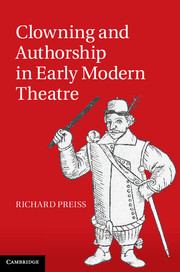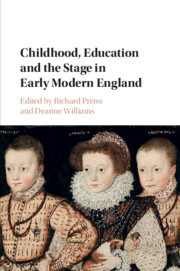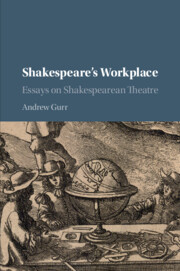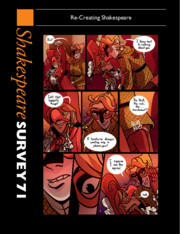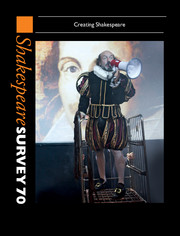Clowning and Authorship in Early Modern Theatre
- Author: Richard Preiss, University of Utah
- Date Published: March 2014
- availability: Available
- format: Hardback
- isbn: 9781107036574
Hardback
Other available formats:
Paperback, eBook
Looking for an inspection copy?
This title is not currently available for inspection. However, if you are interested in the title for your course we can consider offering an inspection copy. To register your interest please contact [email protected] providing details of the course you are teaching.
-
To early modern audiences, the 'clown' was much more than a minor play character. A celebrity performer, he was a one-man sideshow whose interactive entertainments - face-pulling, farce interludes, jigs, rhyming contests with the crowd - were the main event. Clowning epitomized a theatre that was heterogeneous, improvised, participatory, and irreducible to dramatic texts. How, then, did those texts emerge? Why did playgoers buy books that deleted not only the clown, but them as well? Challenging the narrative that clowns were 'banished' by playwrights like Shakespeare and Jonson, Richard Preiss argues that clowns such as Richard Tarlton, Will Kemp, and Robert Armin actually made playwrights possible - bridging, through the publication of their routines, the experience of 'live' and scripted performance. Clowning and Authorship tells the story of how, as the clown's presence decayed into print, he bequeathed the new categories around which theatre would organize: the author, and the actor.
Read more- Examines a species of performer who played a vital role in the shape of early modern playhouse entertainment, expanding our knowledge of how audiences and performance functioned relative to one another
- Looks beyond printed plays as sources of evidence of theatrical practice, enabling a more composite understanding of early modern theatrical production
- Presents new readings of non-canonical texts written by stage clowns, using these to provide new analysis of canonical plays by Shakespeare, Jonson and others
Reviews & endorsements
'Original, sophisticated and deeply researched.' The Times Literary Supplement
Customer reviews
Not yet reviewed
Be the first to review
Review was not posted due to profanity
×Product details
- Date Published: March 2014
- format: Hardback
- isbn: 9781107036574
- length: 298 pages
- dimensions: 229 x 147 x 25 mm
- weight: 0.54kg
- contains: 11 b/w illus.
- availability: Available
Table of Contents
Introduction: the play is not the thing
1. What audiences did
2. Send in the clown
3. Wiring Richard Tarlton
4. Nobody's business
5. Private practice
Epilogue: the principal verb.
Sorry, this resource is locked
Please register or sign in to request access. If you are having problems accessing these resources please email [email protected]
Register Sign in» Proceed
You are now leaving the Cambridge University Press website. Your eBook purchase and download will be completed by our partner www.ebooks.com. Please see the permission section of the www.ebooks.com catalogue page for details of the print & copy limits on our eBooks.
Continue ×Are you sure you want to delete your account?
This cannot be undone.
Thank you for your feedback which will help us improve our service.
If you requested a response, we will make sure to get back to you shortly.
×
